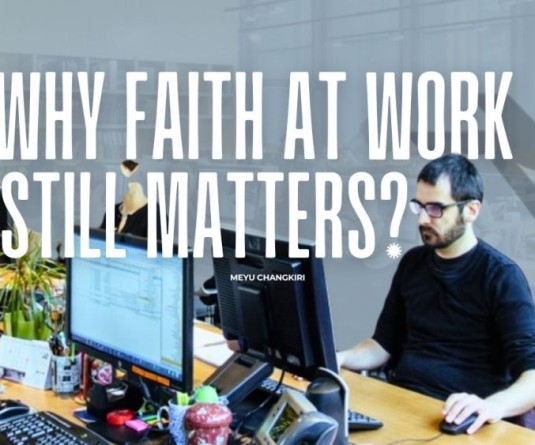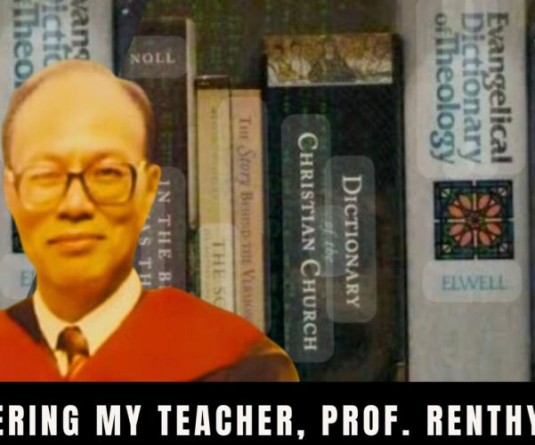
Kedo Peseyie
C.S. Lewis is right again. Pride is the most dangerous of all vices and the cancer of the soul. And one reason why it is so dangerous is because often it can so easily be concealed in our religious fervour and restrained in nice acceptable behaviour. The cancer can be ignored and allowed to spread in such situation.
Not many people will openly admit of having pride as one of their weakness. That is why I was surprise when this boy in a camp came to me and said he wanted to spend some time with me. He told me only one thing that day; that he is a very proud person and didn’t like the way he is. “I want to learn how to be humble, but I am too proud.”
I didn’t know where to begin to reply him but I immediately remembered C.S. Lewis’ writing, “If anyone would like to acquire humility, I can, I think, tell him the first step. The first step is to realise that one is proud… At least nothing whatever can be done before it. If you think you are not conceited, it means you are very conceited indeed.”
So that was where we began our discussion that day. Basing on Lewis’ writings, I tried explaining to him the nature of pride; the legitimate, healthy pride and the illegitimate, destructive pride.
First I said, pride is dangerous because, essentially, it is competitive in nature. It is a very unhealthy and destructive kind of a competition. Lewis said a person is not proud because he is rich, successful and good looking. But he is proud because he is richer, more successful and better looking than others around him. It is the comparison and the competition that makes a man proud.
There is so much of this unhealthy comparison and competition in our society. That person has a car, so I must have a better car. That woman is gaining popularity too fast, I must keep up before she overtakes me. As long as there is someone around who is more powerful, successful and richer, the proud man will never rest in peace because there is an enemy and a rival still left to conquer. This evil facet of pride always alienates people. In his ever witty and jocular style, C.S. Lewis says that other vices can sometimes bring people together. There can often be a lot of laughter and merrymaking among drunken people and unchaste people, but never among people who are proud. Pride always brings enmity among people.
And the most evil thing about pride is that it is not just enmity among people, it is enmity against God. In God a proud person will always find a force he will never be able to outdo and outsmart. That’s why teachers say that pride—unlike the other temptations—comes straight from Hell. In other “lesser” temptations, the Devil often uses the animal instinct in us to lure us into sin, like the sin of adultery, murder, of stealing and corruption etc. But in committing the sin of pride the Devil directly instils in us a piece of his very evil nature straight from Hell. His pride was the very reason he fell from Heaven. He thought he could do better than God. Aren’t there a lot of people in our world and in our religious circle who think they can actually do better than God? I often wonder why only the sins of sexual promiscuity and adultery is considered as sins deserving excommunication from the church. And when this “…essential vice, the utmost evil, …pride…” smuggles it’s way comfortably into the very centre of our religious and social lives, it goes unnoticed and unattended.
My friend listened attentively as I struggled to remember what Lewis said about pride in his book. We came to the part where he said that pride is not always sin. First, he said, “The pleasure in being praised is not pride.” We all love it when people praise us. And it is a good thing to delight in the praises of people because it also means that we value people enough to care about their praise. All is well as long as we are saying, “She praised me. I have pleased her and I am satisfied.” The real trouble starts when you begin to say, “I have pleased her. What a wonderful person I must be.” When you begin to take pleasure, not in the praise, but in the kind of person you think you are, then you are in trouble. But you are in the worst kind of trouble when you begin to say, “Hey, I am doing well by myself. I don’t need the opinion or praise of other people. Even if they praise me it doesn’t make any difference to me.” You can be sure that you are in the same kind of trouble the Devil is. There is no redemption for this kind of thinking.
Second. When a father says he is proud of his son, that is a kind of pride God himself will approve. For God knows that feeling of a father who has the pride to say, “this is my Son with whom I am well pleased.” But again the trouble will start if the father begins to say, “Hey I am such a good father, my son is lucky to be my son.” To take pride in something outside of God’s blessing and God himself is a fault. For we are not allowed to love and admire anything more than we love and admire God.
And finally how can we identify a humble person? Clearly, he will not be someone who goes around saying, “Hey I am a humble person”, or a man who stands up on the church pulpit to tell you what an unworthy and worthless person he is. Such characters annoy and irritate. Humility, I think, should refresh and elevate. If you happen to meet a person who refreshes you and makes you realise that you are not a worthless person after all; a person who seems to enjoy life and is not easily annoyed by pride or circumstances around him; if you find a person who seem truly interested in you and what you do; and if after meeting him you go away feeling even a tiny pinch of greatness revived in your soul, then you can be sure that you have met a truly humble person.
But the truly humble person is the Man and God Jesus Christ who not only made me feel like a prince, but even promised to make me one someday. He came to serve and to die for a fault that was not his. Who can resist such humility. If His followers exhibit more of this humility of the master, I am sure to win the world wouldn’t be such a difficult thing.
I finally finished my discourse on Lewis which my friend faithfully tried to follow through. That day I realised what a lousy and catastrophic counsellor I was. My friend finally looked up and said, “Sir, thank you. Now I think I am not that proud after all!”
Ah! And it all started from there again.





